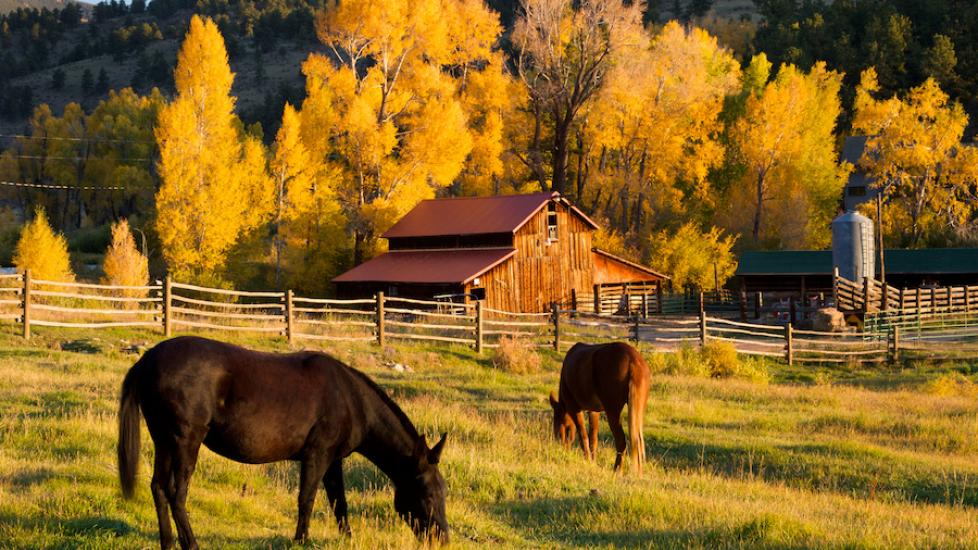Maple Leaf Poisoning in Horses
What Is Maple Leaf Poisoning in Horses?
Maple leaf poisoning in horses is seen most frequently in the Midwest and eastern part of the United States as well as Canada. Interestingly, fresh maple leaves are not toxic to horses and the leaves only become toxic once they begin to wilt. Today, the identity of the specific toxin in maple leaves is unknown.
Due to the toxin only being present once the leaves begin to wilt, it is not surprising that most cases of maple leaf poisoning are seen in late summer or early fall. Poisoning can also occur during the spring and summer following heavy storms–causing tree limbs to fall in pastures. While maple leaf poisoning is rare, it is serious and life-threatening even with treatment. If you suspect your house has maple leaf poisoning, contact your veterinarian immediately.
There are 115 species of maples trees and shrubs, but only four are most commonly native to the US:
-
Sugar Maple
-
Red Maple
-
Silver Maple
-
Boxelder
How Toxic are Maples to Horses?
The average 1,000-pound horse only needs to ingest 1.5 to 3 pounds of wilted or dried out leaves to start showing clinical signs of toxicity. While the identity of the toxin is unknown, it is know that the toxin causes oxidative damage to red blood cells leading to a severe acute hemolytic anemia. Clinical signs typically begin as early as 18 hours after ingestion and up to 5 days after. Once the maple leaves have wilted, they will remain toxic for about 30 days.
Is Maple Tree Bark Poisonous to Horses?
Yes, maple tree bark and branches also contain toxins, but it is unlikely your horse will eat enough to cause illness.
Symptoms of Maple Leaf Poisoning in Horses
Signs of maple leaf poisoning include:
-
Depression/lethargy
-
Weakness
-
Pale to yellow mucous membranes
-
Dark brown to red urine
-
Anorexia (refusing to eat)
-
Labored breathing
-
Increased heart rate
Treatment of Maple Leaf Poisoning in Horses
While there is no reliable treatment or cure for maple leaf poisoning, your veterinarian will focus treatment on preventing absorption of the toxin and supportive care. Administering activated charcoal and/or mineral oil through a stomach tub can help in the prevention of absorption. Supportive care will consist of intravenous fluids to help flush and prevent kidney damage. Administration of a blood transfusion may be needed to help in cases of severe anemia. Non-steroidal anti-inflammatory drugs, corticosteroids and vitamin C may also be included for supportive care.
Prognosis is considered guarded to poor for horses with maple leaf poisoning. It is best to call your veterinarian right away if you have any concerns that your horse may have eaten maple leaves. Starting treatment as early as possible will set your horse up for the best prognosis.
Prevention of Maple Leaf Poisoning in Horses
Since there is no cure for maple leaf poisoning, the key to protecting your horse is prevention of exposure. Prevention of maple leaf toxicosis is best accomplished through management practices as follows:
- It is not necessary to cut down all maple leaf trees in horse pasture. Instead, cut down all low branches to keep out of reach of horses and small trees should be fenced off.
- Make sure to remove all fallen branches and leaves in the pasture from storms and never throw out leaves gathered during yard work into the pasture.
- If you have any maple trees in dry lots or where there is access to limited forage, these should be cut down since horses with limited forage are more likely to eat the leaves than horses with lush pasture.
- Moving horses from areas of high prevalence of maple trees during the fall may also be necessary to prevent exposure risk.
- When planting new trees around or in turnout/pasture areas, be diligent with the species and ask your veterinarian if unsure whether a type of tree is a risk to your horse.
References
University of Minnesota Extension. Are maple leaves toxic to horses?
Cornell University Department of Animal Science. Plants Poisonous to Livestock.
AAEP. Red Maple Poisoning. 2019.
Featured Image: iStock.com/beklaus
